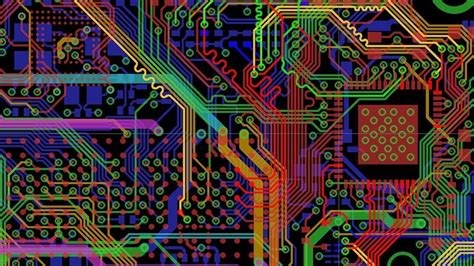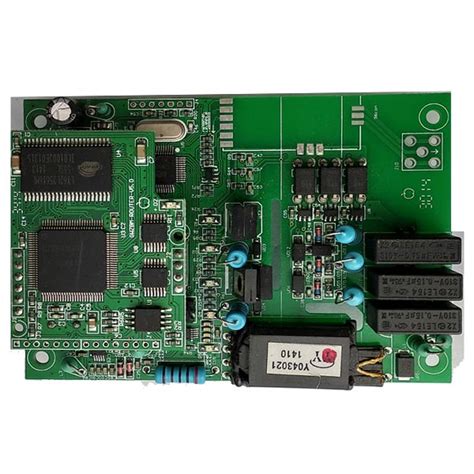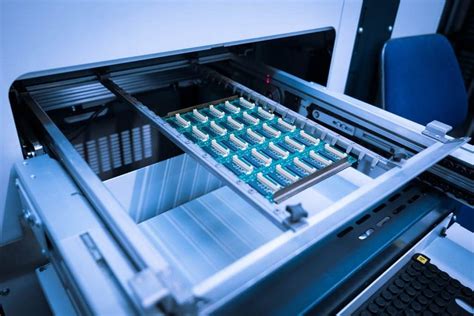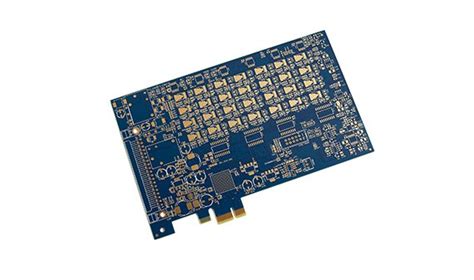Choosing the Best 6 Layer PCB Manufacturer for Your Projects
Key Takeaways
When selecting a 6 layer PCB manufacturer, it’s crucial to recognize several key aspects that can impact your project’s success. First and foremost, the pcb manufacturing process has evolved significantly, providing enhanced design flexibility and improved performance characteristics. Understanding the advantages of 6 layer PCBs, such as increased circuitry density and reduced electromagnetic interference, will aid you in making informed decisions. Additionally, consider the specific applications of these boards; they are commonly used in advanced electronics projects ranging from consumer gadgets to industrial devices.
Evaluating potential pcb manufacturing companies involves thorough research into their certifications and quality assurance protocols to ensure that they meet industry standards. Pay special attention to the pcb manufacturing cost, as it varies widely among manufacturers. A detailed cost analysis will help you identify affordable yet reliable options without compromising on quality. Another critical factor is the communication process; establishing a good rapport with your manufacturer can ease project development and tackle common challenges in the pcb manufacturing business.
By focusing on these elements, you can choose a manufacturer who not only meets your operational needs but also aligns with your project goals.
Choosing the Right 6 Layer PCB Manufacturer: Key Considerations
When selecting a 6 layer PCB manufacturer, there are several critical factors you should evaluate to ensure your projects meet both quality and budgetary constraints. First, investigate the pcb manufacturing capabilities of potential suppliers. Look for manufacturers with a solid reputation in the industry to ensure they can consistently deliver high-quality products. You may want to request samples to assess their craftsmanship firsthand.
Another vital aspect is understanding pcb manufacturing cost. While it’s tempting to opt for the cheapest option, consider the long-term implications of quality over price. Often, investing in a reputable manufacturer will reduce issues during production, thus saving money in revisions and potential project delays.
Additionally, examine their capacity to handle customization and scalability. Your projects may change in size or complexity, so working with pcb manufacturing companies that offer flexibility will help you adapt as needed.
Lastly, don’t overlook communication. A manufacturer that maintains clear and effective dialogue is more likely to be trustworthy and responsive, ensuring a smoother collaboration.
“A good partnership begins with clear communication; make sure your manufacturer understands your specific needs.”
Taking these considerations into account will enhance your chances of selecting a suitable partner for your pcb manufacturing business, ultimately leading to successful outcomes for your electronic projects.
Understanding the Advantages of 6 Layer PCBs
When you delve into the realm of 6 layer PCBs, it’s essential to recognize the numerous advantages they offer. One of the primary benefits is their ability to accommodate more complex designs compared to 4 layer or simpler configurations. This capability is crucial for devices requiring higher functionality in a compact space, allowing for intricate circuit pathways and minimizing signal interference. The additional layers not only enhance connectivity but also improve thermal management, which is vital for high-performance applications.
Furthermore, pcb manufacturing processes associated with 6 layer PCBs often utilize advanced materials that ensure durability and reliability. This can significantly affect the overall pcb manufacturing cost, making it a worthwhile investment for your projects. Indeed, partnering with reputable pcb manufacturing companies can lead to improved product quality and longevity, ensuring that your devices meet industry standards.
In modern electronics, where space is at a premium and efficiency is key, the use of 6 layer PCBs has become a favored choice among engineers. The versatility in design and ability to incorporate multiple functionalities make them suitable for various applications—from consumer electronics to aerospace technology. As you navigate through your options in the pcb manufacturing business, recognizing these advantages will empower you to make informed decisions that enhance the effectiveness of your projects while optimizing costs and performance.
Applications of 6 Layer PCBs in Modern Electronics
In the ever-evolving landscape of technology, 6 layer PCBs are becoming increasingly essential due to their ability to accommodate complex circuitry within a compact space. These printed circuit boards are often utilized in advanced applications such as smartphones, tablets, and high-end consumer electronics, where space is at a premium. One key advantage of choosing a 6 layer PCB is that it allows for more routing options and layers, making it ideal for high-frequency applications and ensuring optimal signal integrity. When selecting a manufacturer, it’s important to consider their expertise in pcb manufacturing practices; this includes evaluating their capability to produce boards that meet your specific requirements while adhering to stringent quality standards. By partnering with reputable pcb manufacturing companies, you can ensure that your projects not only meet technical specifications but also excel in performance. Additionally, understanding the overall pcb manufacturing cost can help you make informed decisions on sourcing materials without compromising quality. Ultimately, the applications of 6 layer PCBs are vast and pivotal in modern electronics, making it crucial to choose the right manufacturer that aligns with your project’s goals and expectations in the competitive pcb manufacturing business landscape.
Evaluating Quality Standards in PCB Manufacturing
When selecting a 6 layer PCB manufacturer, it’s crucial to evaluate their quality standards to ensure that your projects meet the necessary reliability and performance criteria. A significant aspect of PCB manufacturing involves adhering to global quality certifications such as ISO 9001 and IPC standards, which outline best practices in the industry. These certifications not only reflect the manufacturer’s commitment to excellence but also indicate that their processes have been rigorously assessed for compliance. As you navigate through various PCB manufacturing companies, take note of their quality assurance processes, including materials used and testing methodologies employed. Understanding these factors contributes to assessing the overall PCB manufacturing cost as high-quality materials and thorough testing can influence pricing but ultimately lead to better performance results. Additionally, don’t overlook customer feedback regarding their experience with the manufacturer’s quality, as this can provide deeper insights into real-world performance. In a competitive PCB manufacturing business, suppliers that prioritize quality are more likely to deliver reliable products tailored to your specific needs. By employing a meticulous approach in evaluating these standards, you can ensure that your chosen manufacturer aligns with your project goals and upholds the highest industry benchmarks.
Cost-Effectiveness: Finding Affordable 6 Layer PCB Options
When considering 6 layer PCBs for your projects, cost-effectiveness is crucial. You want to ensure that you’re not only getting high-quality PCB manufacturing but also a reasonable pcb manufacturing cost that aligns with your budget. Many pcb manufacturing companies offer competitive pricing, but it’s essential to evaluate what each company brings to the table. Look for manufacturers who provide a balance of affordability and quality—those that invest in advanced technology and utilize efficient processes can often keep costs down while maintaining superior standards. Additionally, remember to assess factors such as bulk pricing, customization options, and delivery times when choosing a pcb manufacturing business. By conducting thorough research and comparing multiple options, you can identify the best path forward to obtain excellent 6 layer PCBs without compromising on quality or breaking the bank.
Key Factors for Sourcing High-Quality Printed Circuit Boards
When sourcing high-quality printed circuit boards, particularly 6 layer PCBs, it’s crucial to consider several important factors. First, evaluate the pcb manufacturing capabilities of the manufacturer you are considering. An experienced manufacturer should demonstrate proficiency in advanced technologies and materials to ensure durability and performance. Additionally, look into their production standards; compliance with international quality certifications plays a significant role in guaranteeing that your boards meet industry requirements.
Next, consider the pcb manufacturing cost associated with your choices. While it might be tempting to opt for the lowest bidder, be mindful that quality often correlates with cost. Focus on manufacturers offering a balance between affordability and high standards to avoid future reliability issues. Researching reviews and client testimonials can provide you insights into the experiences of others, informing your decision.
Furthermore, explore the production times offered by different pcb manufacturing companies. Fast turnaround times can be critical, especially if timelines are tight for your project development. Engage with potential suppliers about their capacity to meet specific deadlines while maintaining quality standards.
Lastly, assess their customer support and communication practices. A responsive and communicative partner can significantly improve collaboration throughout your pcb manufacturing business journey, making it easier for you to address any potential issues promptly. By thoroughly evaluating these factors, you’ll be well-equipped to find a reliable manufacturer that meets your needs for high-quality 6 layer PCBs.
Common Challenges When Working with 6 Layer PCB Manufacturers
When engaging with 6 layer PCB manufacturers, you may encounter various challenges that can impact your project’s success. One of the primary issues often involves communication. Ensuring that specifications, requirements, and expectations are clearly conveyed is crucial; misunderstandings can lead to delays and increased pcb manufacturing costs. Additionally, the complexity of pcb manufacturing processes for 6-layer designs means you need a manufacturer with right expertise to handle intricacies such as layer stacking and impedance control.
Another challenge lies in ensuring that the manufacturing company adheres to top-notch quality standards. Choosing pcb manufacturing companies that have established a reputation for stringent quality assurance practices is essential. This can significantly affect the durability and reliability of your final product, particularly as 6 layer PCBs often serve critical functions in advanced electronics.
Furthermore, sourcing materials that meet your specifications while keeping an eye on cost is key in the competitive pcb manufacturing business landscape. Balancing quality with procurement efficiency can be a delicate task, adding complexity to project management. Keeping these challenges in mind will help you navigate the process more effectively and foster a successful partnership with your chosen manufacturers.
Tips for Successful Collaboration with PCB Manufacturers
Collaborating effectively with PCB manufacturers can significantly impact the success of your project, especially when working with advanced technologies like 6 layer PCBs. To begin, clear communication is essential. Ensure that you articulate your project’s requirements, including design specifications and timelines, so that the manufacturer understands your needs. This helps to minimize misunderstandings and reduces the risk of errors during the PCB manufacturing process. Additionally, it’s beneficial to prioritize transparency regarding PCB manufacturing costs. Discuss budget constraints upfront; this will enable the manufacturer to suggest viable options that align with your financial framework while meeting quality standards.
Another important aspect to consider is establishing a solid relationship built on trust. Engaging in regular check-ins will foster collaboration and allow you to address any issues proactively. When sourcing from various PCB manufacturing companies, consider leveraging their expertise; manufacturers often have valuable insights into industry trends and production techniques that could enhance your project’s outcome. By taking a flexible approach to feedback, you can adapt designs or processes as necessary, ensuring that quality remains paramount through all stages of production.
Finally, ensure that you understand the pcb manufacturing business‘s capacity for handling changes in design or production volume as your project evolves. Being prepared for potential adjustments in demand will facilitate a smoother workflow and help maintain project timelines, ensuring that you receive high-quality products without unnecessary delays.
Conclusion
In summary, selecting the right 6 layer PCB manufacturer is critical for the success of your projects. You should consider several factors, including pcb manufacturing capabilities, quality standards, and compliance with industry regulations. Understanding the advantages of 6 layer PCBs will help you make informed decisions. These boards offer benefits such as increased design complexity and improved performance in compact spaces. The cost-effectiveness of working with reputable pcb manufacturing companies cannot be overlooked; price can influence your project’s overall budget and timeline. Additionally, as you navigate through various pcb manufacturing cost options, prioritize quality in order to avoid future complications that could arise from inferior boards. Working collaboratively with your chosen manufacturer enhances communication and can lead to a smoother production process. Addressing common challenges proactively will prepare you for any obstacles along the way. In the fast-paced world of electronics, making strategic choices about your pcb manufacturing business partners will contribute significantly to achieving your project goals efficiently and effectively.
FAQs
What are the typical costs associated with pcb manufacturing?
The pcb manufacturing cost can vary significantly based on factors such as complexity, volume, and the materials used. Generally, higher layer counts and intricate designs will lead to increased costs.
How can I ensure quality from pcb manufacturing companies?
To guarantee quality, look for pcb manufacturing companies that adhere to international quality standards. Additionally, reviews and certifications can provide valuable insights into a company’s reliability.
What are some common challenges in the pcb manufacturing business?
Common challenges include communication barriers, design changes during production, and production delays. Thorough planning and clear communication can help mitigate these issues.
How do I select the right manufacturer for my 6 layer PCB project?
When selecting a manufacturer for your 6 layer PCB project, consider their experience with multilayer PCBs, lead times, customer service, and previous client feedback to ensure you find a trustworthy partner.







